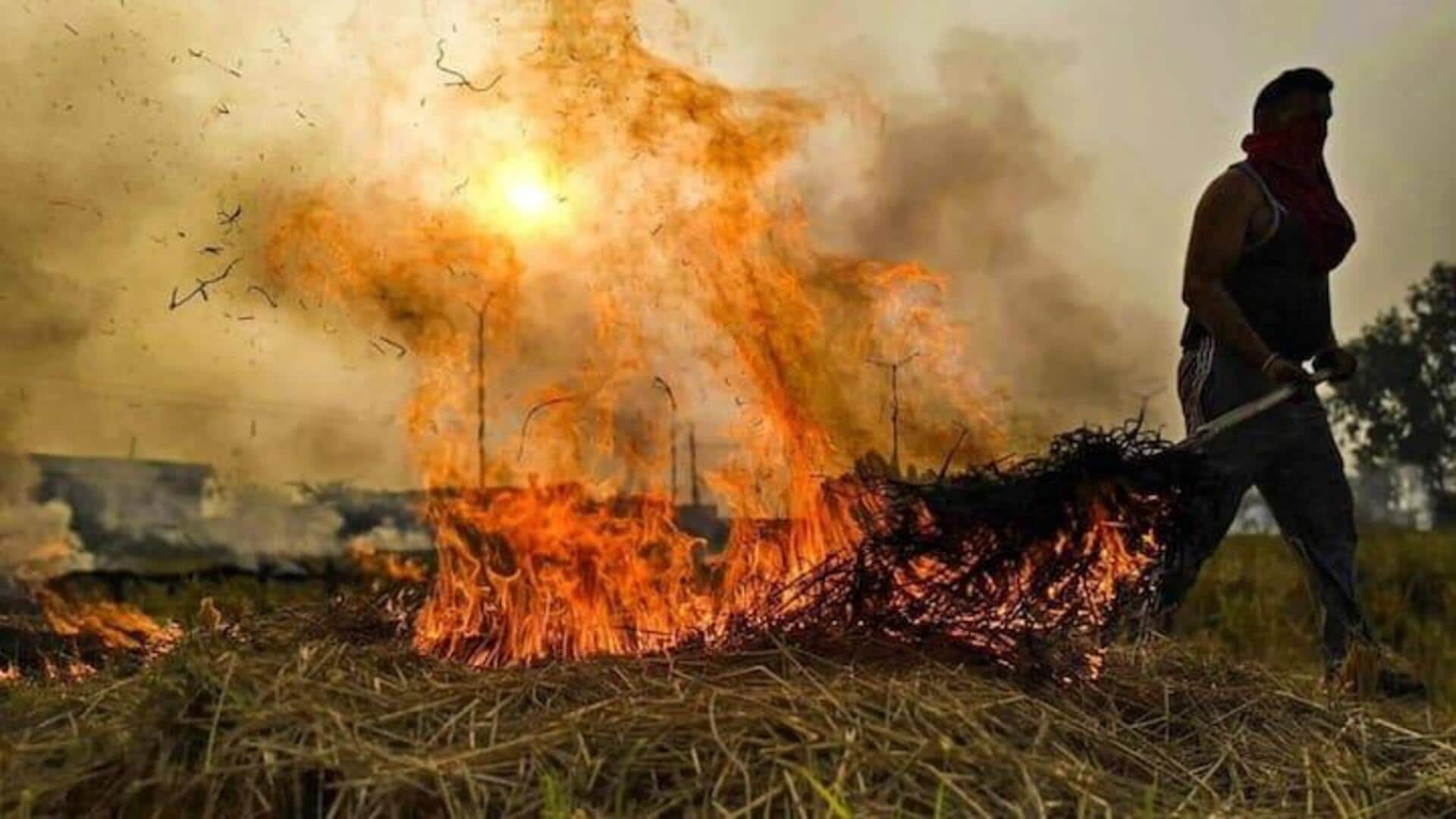
Supreme Court asks Punjab, Haryana about action on stubble burning
What's the story
The Supreme Court has asked Punjab and Haryana about action taken to control stubble burning in the states. A bench of Chief Justice BR Gavai and Justice K Vinod Chandran passed the order after it was told that stage III of the Graded Response Action Plan (GRAP) has been implemented due to worsening air quality in Delhi. "Let Punjab and Haryana governments respond on steps taken to control stubble burning," the court said before listing the case on November 17.
Pollution crisis
AQI crossed 450 in some areas: Plea in SC
The court was hearing environmental pleas in the MC Mehta case. During the hearing, senior Advocate Gopal Sankaranarayanan informed the court that the Air Quality Index (AQI) had crossed 450 in some areas, including construction activities on Supreme Court premises. He argued that while the Commission for Air Quality Management (CAQM) implemented Graded Response Action Plan III, Graded Response Action Plan IV should be implemented instead.
Data accuracy
Data on air monitoring stations 'false': Counsel
One counsel also raised concerns about false data on air monitoring stations. "There is a huge problem; the data getting uploaded is false," he said, requesting responses from CAQM and the Central Pollution Control Board (CPCB). Amicus curiae Senior Advocate Aparajita Singh also raised concerns over farmers delaying stubble burning to avoid detection by satellites. She cited a NASA scientist's analysis that indicated crops are burnt after satellite passes.
Data manipulation
Farmers delaying stubble burning to avoid detection: Amicus curiae Singh
Singh referred to an India Today coverage where farmers claimed they were instructed by the administration to burn crops at specific times. She argued that if the NASA scientist is right, this could mean collected data on stubble burning isn't authentic. Singh also urged the court to modify its 2018 order mandating CAQM to take action when AQI exceeds 400. She warned that conditions could worsen before Monday's hearing. The bench, however, decided to hear the matter only on Monday.